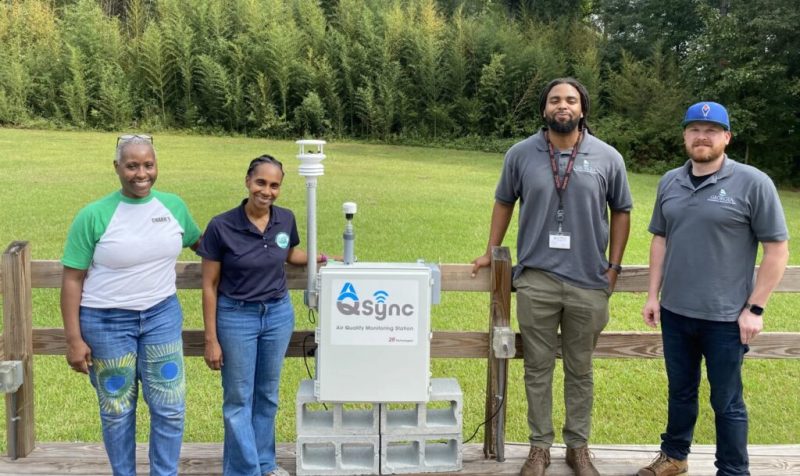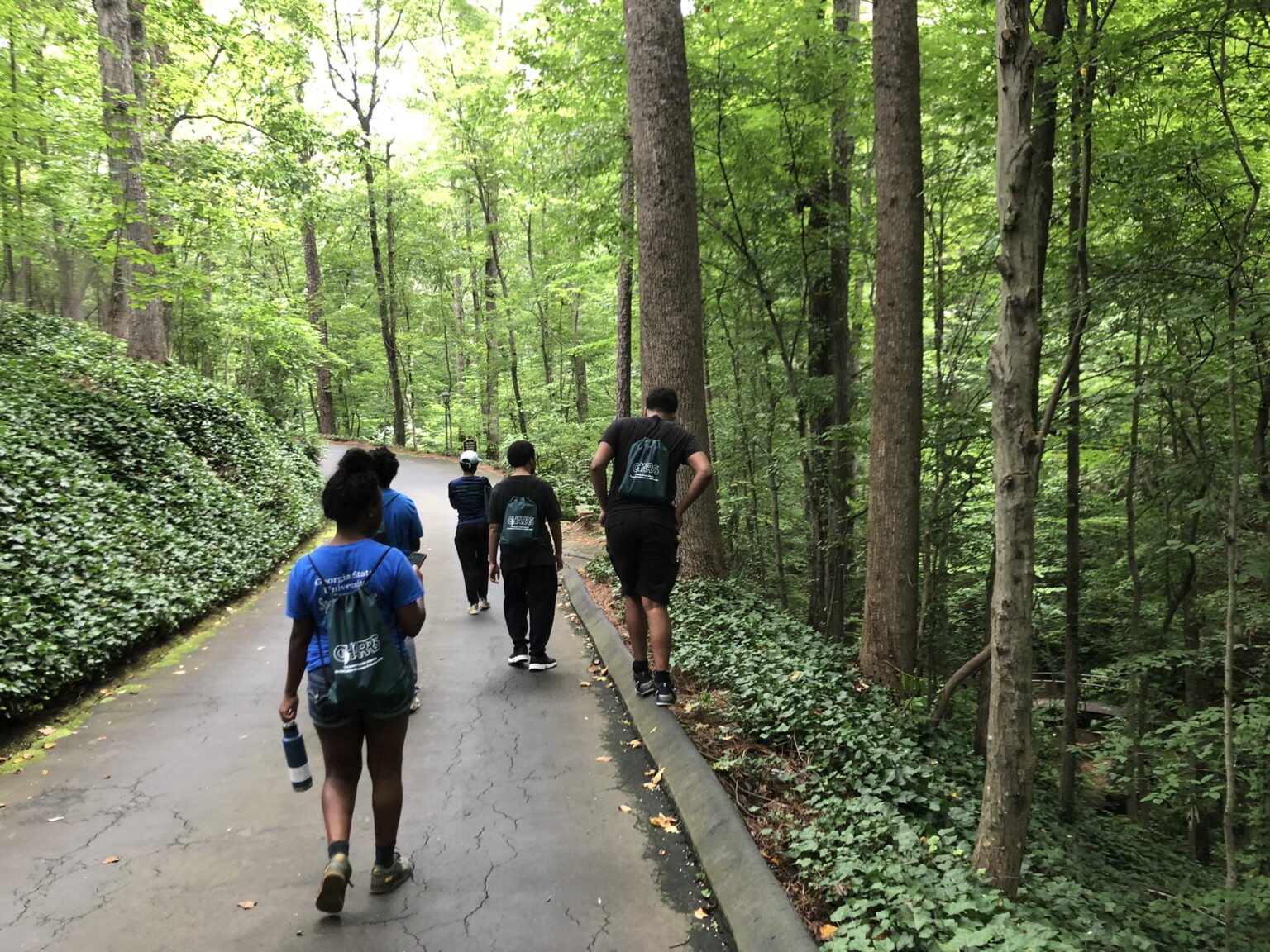
Since 2016, Community Health Aligning Revitalization Resilience & Sustainability (CHARRS), based in Atlanta, has worked to address the environmental hazards threatening historically Black neighborhoods like Collier Heights, on the southside of Atlanta, considered one of the U.S.’s most segregated cities. Residents face polluted air, contaminated waterways such as Sandy Creek and Proctor Creek, and decades of neglect that contribute to high rates of asthma, heart disease, and exposure to toxic chemicals. CHARRS leads hands-on programs such as the Environmental Health Outdoor Classroom and “It All Happens in the Watershed,” where youth and families test local air and water in partnership with groups like West Atlanta Watershed Alliance and Chattahoochee Riverkeeper. With these community science efforts, CHARRS turns education into action, helping residents confront the hazards in their environment and advocate for healthier, more just neighborhoods.

A group of High School Students visits Atlanta’s Hawke Hollow Wylde Center as part of CHARRS’ Project REMOVE. Photo Source: CHARRS
Gwen Smith, an environmental health specialist and Atlanta resident, founded CHARRS after witnessing the long-standing health toll environmental racism took on her community. The Black, women-led organization, supported by a project manager and a four-person board, has launched programs that bring practical solutions to real problems. The Environmental Health Outdoor Classroom, supported by Emory University’s Rollins School of Public Health and Agnes Scott College, offers students and residents hands-on training in environmental testing. The REMOVE initiative focuses on radon safety, while the Atlanta Repair Café teaches residents how to fix electronics, appliances, and clothing – cutting down on waste and building community skills. When needs arise, CHARRS responds with free grocery drives, COVID testing, and voter registration drives. Serving majority-Black counties in the Atlanta region’s Fulton, Dekalb, Cobb and Cook counties, CHARRS helps residents learn, lead, and take back control of their health and environment.